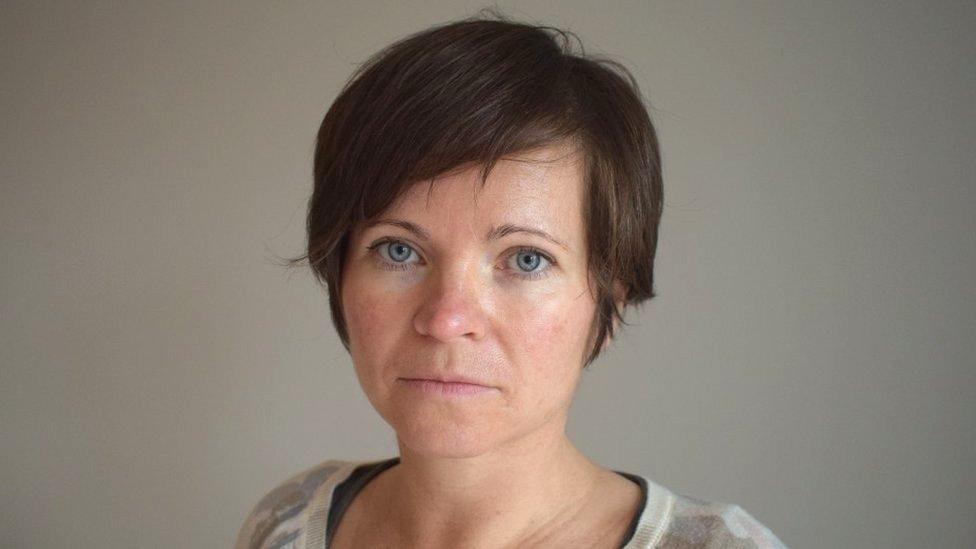Long Covid clinics 'not envisaged' for Scotland
- Published
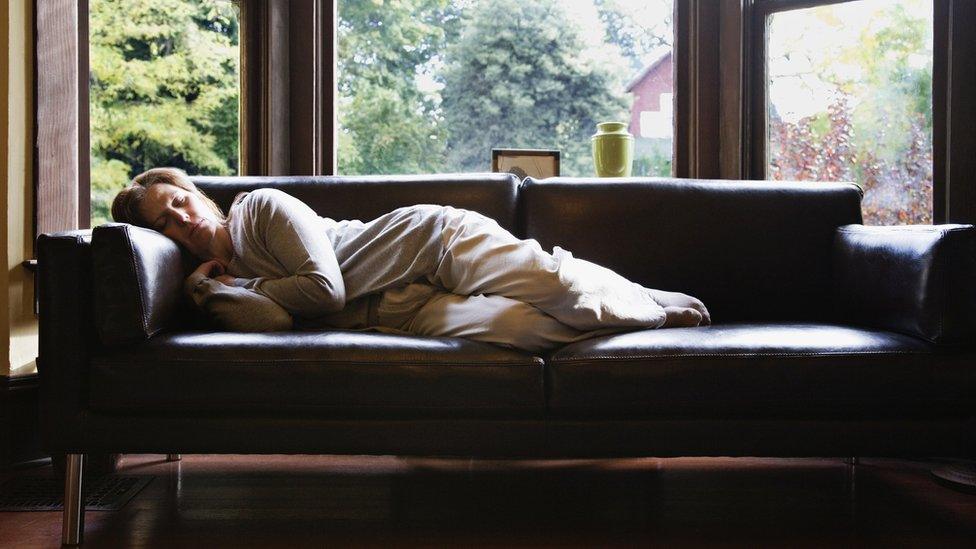
Scotland's national clinical director has said he "does not envisage" specialist clinics being introduced to treat "long Covid".
Prof Jason Leitch said it was likely the condition would be managed by GPs.
The NHS has opened 69 specialist clinics across England to offer rehabilitation to people recovering from the disease.
Last month the first minister said there was not enough research for Scotland to make a similar commitment.
While experts are wary of this lack of data, early estimates suggest as many as 6,000 people in Scotland were experiencing long-term symptoms after the first wave of the pandemic.
The Scottish Intercollegiate Guidelines Network (Sign) says the impact of the condition is "significant".
'Managed in primary care'
On Friday the Scottish government told the BBC it was considering evidence for the use of specialist clinics following the publication of new long Covid guidelines.
However, Prof Leitch told Friday's daily briefing the likely outcome would be that long Covid would be managed in a similar way to asthma or epilepsy.
He said the number of people suffering from "long, stubborn debilitating disease" was "very small" and that those individuals would be treated in rehabilitation such as respiratory or cardiac services.
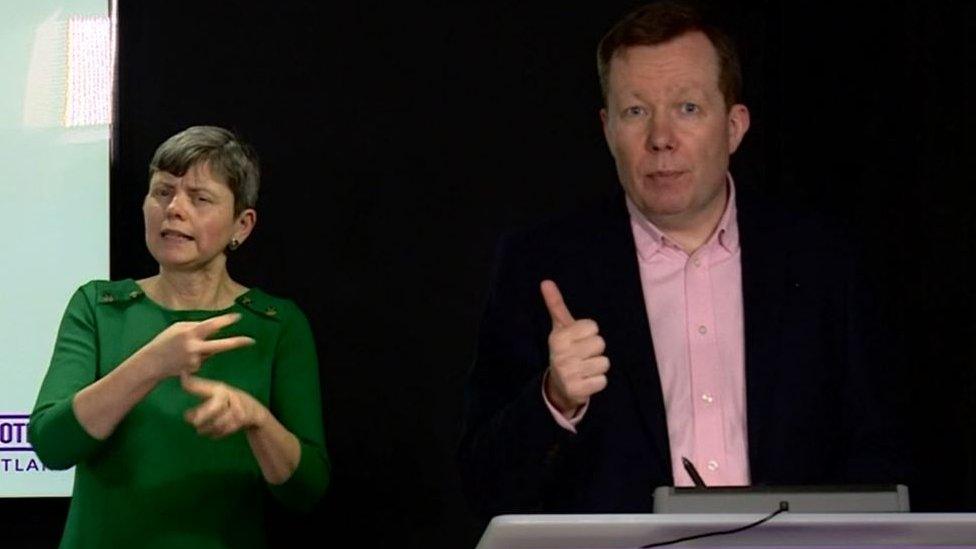
Prof Jason Leitch spoke about the approach to long Covid in Scotland during Friday's daily briefing
"There is a pyramid structure for where you will get treatment," he said. "The vast majority of asthmatics never go to a respiratory clinic - they are seen in their general practice, they have repeat prescriptions, they are managed very well by community nurses.
"A very small number have to go for regular respiratory clinic visits. I think in time long Covid will look much like that. Many people will have longer symptomatic spells and then it will go away again - that will be managed in primary care.
"I don't envisage a new sign in hospitals saying 'long Covid this way', it will be much more holistic than that."
Health Secretary Jeane Freeman added that it had not been decided whether specialist clinics would be launched, or whether Scotland would "maximise the use of our excellent primary care system".
A recent BBC investigation found that only two health boards in Scotland were working on long-term strategies for long Covid.
At the time, the Scottish government said it was funding more research and guidance before finalising a treatment plan.
What is long Covid?
Last month, health professionals from the Scottish Intercollegiate Guidelines Network, the National Institute for Health and Care Excellence (NICE) and the Royal College of General Practitioners (RCGP) defined the term Post-Covid Syndrome.
They described it as "signs and symptoms that develop during or following an infection consistent with Covid-19 which continue for more than 12 weeks and are not explained by an alternative diagnosis".
The latest guidelines written by the three bodies list more than two dozen common long-term symptoms including breathlessness, a cough that will not go away, joint pain, muscle aches, hearing problems, headaches, loss of smell and dizziness.
Mental health problems have been reported including depression, anxiety and struggling to think clearly.

'Patients need access to services'
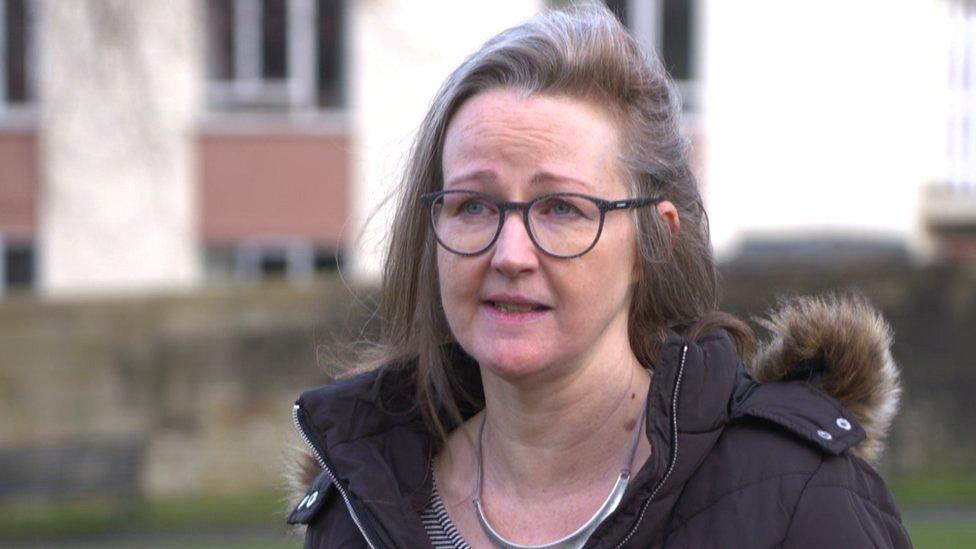
Lesley Macniven told the BBC patients needed to be able to access services - whatever form they took
Campaigner Lesley Macniven, who is behind the Long Covid Action Group in Scotland, has been experiencing lasting virus symptoms since March.
The group has been speaking to Scottish government officials to inform the guidance given on the condition.
Ms Macniven said while the new guidelines were "brilliant" for people who had been freshly diagnosed with the virus, it was still the "start of the change process".
She added that even if Scotland did not create long Covid clinics, the services needed to be accessible to patients.
"We've got to remember there are people who have been living with this," she said. "What we have at the moment was not designed for long Covid in mind so we're having to catch up and find additional resources or additional services.
"We can't be arbitrary about how long it's going to take people to go through this process and come out the other side - there needs to be an element of service provision that's flexible."

What is the new guidance?
Published to help doctors diagnose and treat long Covid, the new guidance says the symptoms are often unpredictable, affecting patients in different ways at different times.
It says the likelihood of developing longer-term complications is not thought to be linked to either the severity of the original infection or whether the patient has been admitted to hospital.
It recommends that anyone discharged from hospital after Covid should be offered a video or phone call six weeks later to check for new or ongoing symptoms. Those with severe breathlessness or other respiratory problems should be offered a chest X-ray.
Those who do not need hospital treatment but are still concerned about their health eight weeks after infection should also be offered a consultation and referred to rehabilitation or specialist services if needed - although plans for specialist services have not been published in Scotland.
"As well as ensuring the right breadth of expertise, having a multi-disciplinary team with input from other services and clear referral pathways can help prevent disjointed care and people waiting a long time for appointments with multiple specialists," the guidance reads.
"This was supported by the patient experience evidence, which described the challenges of getting support for such a wide range of symptoms and a lack of co-ordinated care.
"The panel agreed the core expertise that a multi-disciplinary team could include. Because symptoms are so wide ranging, many other areas of expertise could also be added as needed, for example rheumatology, neurology rehabilitation, cardiology, paediatrics, dietetics, speech and language therapy, nursing and pharmacy."


Related topics
- Published11 November 2020
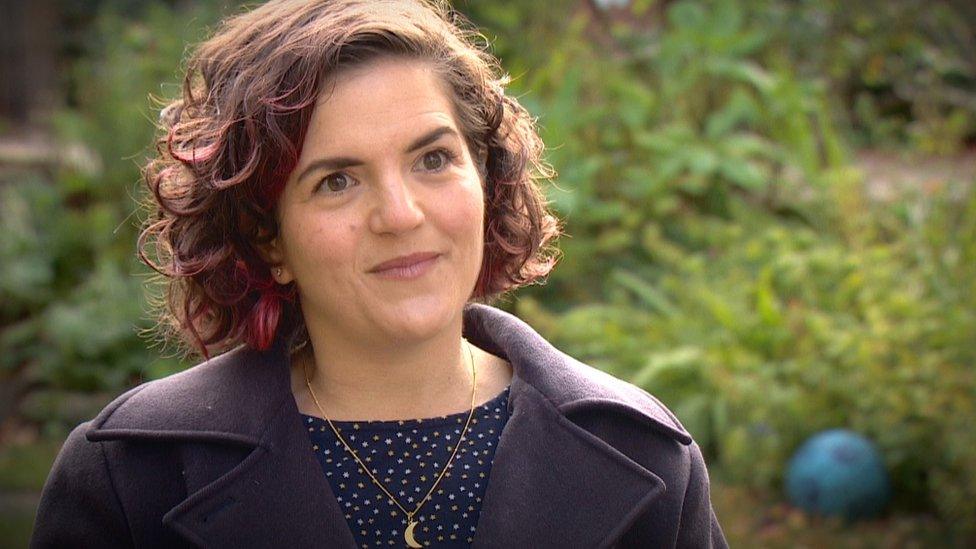
- Published7 November 2020
